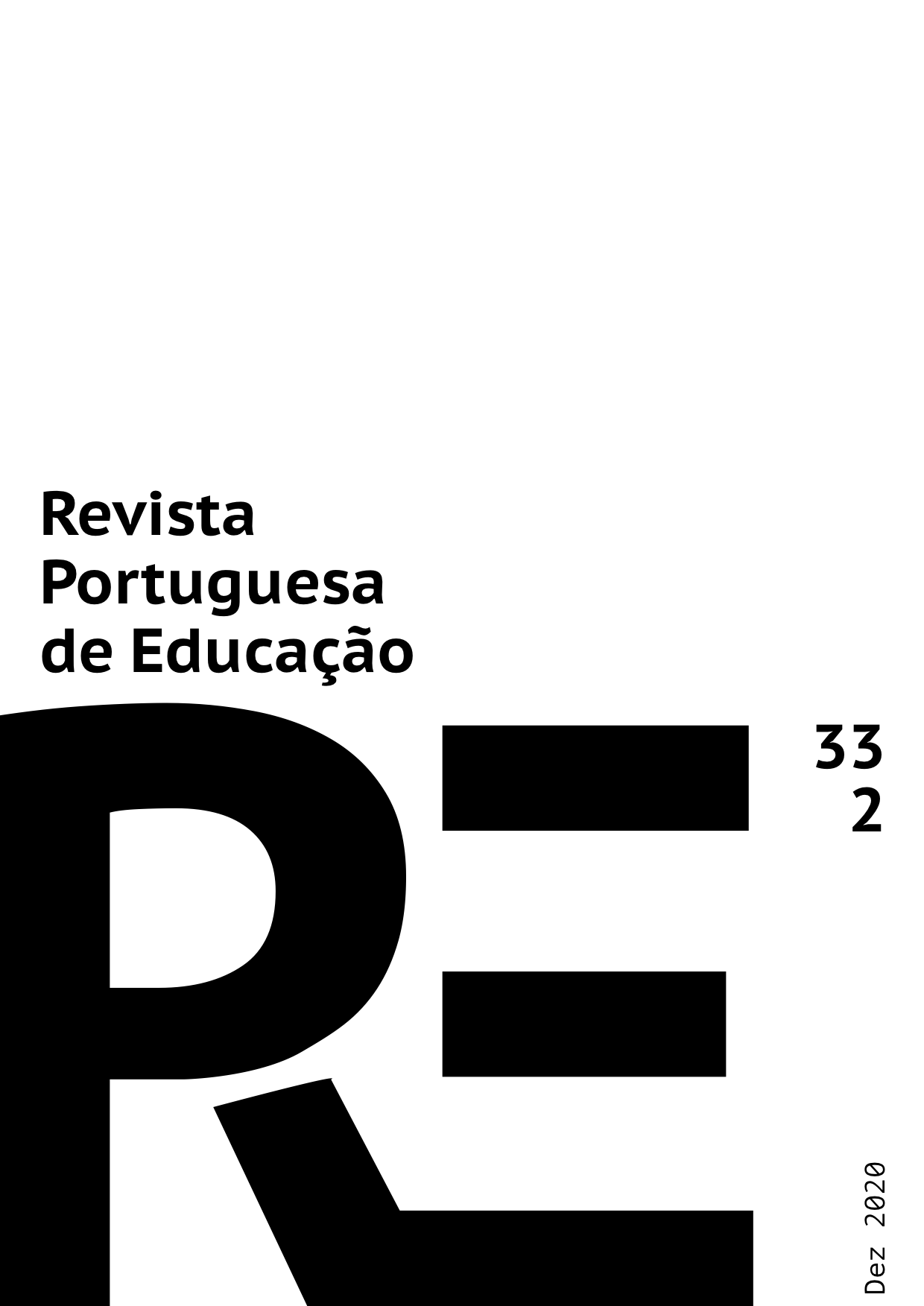Biographic research with unschooled adults
Researcher-participant relationship
DOI:
https://doi.org/10.21814/rpe.19730Keywords:
Biographical research, Unschooled adults, Researcher-participant relationshipAbstract
We analyze the relationship between the researcher and the participants involved in research. The text aims to analyze the methodological dimension resulting from a biographical research, centered on the process of learning of unschooled adults. We developed one biographical research, through biographical interviews, with eight unschooled adults, in Portugal. In this research, we had the assumption that unschooled adults have knowledge, resulting from experience, acquired throughout their life. That experience can be described and socialized through the biographical interview. The research allowed us to understand the importance of experiential learning in the lives of unschooled adults and the use of biographical interviews to access their life paths and knowledge. The relationship generated in the biographical interview proved to be specific and complex, placing the researcher in the face of difficulties and challenges. We can conclude that the researcher should be aware of the specificity and complexity of the relationship in the biographical interview. That is essential for the researcher to overcome difficulties and challenges, as well as to ensure the co-construction of scientific knowledge, based on a significant human relationship. This text reveals the formative dimension of the biographical research for the researcher.
Downloads
References
Alheit, P. (2018). The concept of “biographicity” as background theory of lifelong learning? Dyskursy Młodych Andragogów, 19, 9-22. https://doi.org/10.34768/dma.vi19.41
ALLEA (2017). The European Code of Conduct for Research Integrity. Revised Edition. Berlim: All European Academies. Disponível em : https://www.allea.org/wp-content/uploads/2017/05/ALLEA-European-Code-of-Conduct-for-Research-Integrity-2017.pdf
Allen, M. (2017). The sage encyclopedia of communication research methods. Thousand Oaks, CA: SAGE Publications, Inc. https://dx.doi.org/10.4135/9781483381411
Bertaux, D. (1997). Les récits de vie. Perspective ethnosociologique. Paris: Nathan.
Damásio, A. (2010). O livro da Consciência. A construção do cérebro consciente. Lisboa: Círculo de Leitores.
Delory-Momberger, C. (2019). Entretien de recherche biographique. In C. Delory-Momberger (Dir.), Vocabulaire des Histoires de Vie et de la Recherche Biographique (pp.342-345). Paris : Téraèdre.
Delory-Momberger, C. (2008). Biografia e Educação. Figuras do indivíduo-projeto. Natal/São Paulo: EDUFRN e Paulus.
Delory-Momberger, C. (2014). De la Recherche Biographique en Éducation. Fondements, méthodes, pratiques. Paris : Téraèdre.
Dominicé, P. (2019). Récit de formation. In C. Delory-Momberger (Dir.), Vocabulaire des Histoires de Vie et de la Recherche Biographique (pp.380-384). Paris : Téraèdre.
Dominicé, P. (2006). A formação de adultos confrontada pelo imperativo biográfico. Educação e Pesquisa, 32 (2), 345-357. https://doi.org/10.1590/S1517-97022006000200010
Ferrarotti, F. (2013). Partager les savoirs, socialiser les pouvoirs. Entretien avec Christine Delory-Momberger. Le sujet dans la cité. Revue Internationale de Recherche Biographique, 4, 19-27.
Ferrarotti, F. (1990). Histoire et histoires de vie. La méthode biographique dans les sciences sociales. Paris: Meridiens Klincksieck.
Freire, P. (1972). Pedagogia do Oprimido. Porto: Afrontamento.
Freire. P. (2000). A importância do ato de ler. Em três artigos que se complementam. 39ª Edição. São Paulo: Cortez Editora.
Illich, I. (1985). Sociedade sem escolas (7ª edição). Petrópolis: Editora Vozes.
Lahire, B. (1999). L´invention de l´«illettrisme». Paris: Éditions La Découverte.
Magalhães, J. (2018). Recensão. Na Rota do Mistério. Viver, saber, amar, de José Ribeiro Dias. Revista Portuguesa de Educação, 31(2), 232-236, https://doi.org/10.21814/rpe.15746
Pineau, G. (1988). A autoformação no decurso da vida : entre a hetero e a ecoformação. In A. Nóvoa & M. Finger (Org.), O Método (Auto)biográfico e a Formação (pp.65-86). Lisboa: Ministério da Saúde.
Pineau, G. (2019). Autoformation. In C. Delory-Momberger (Dir.), Vocabulaire des Histoires de Vie et de la Recherche Biographique (pp.193-197). Paris : Téraèdre.
Pineau, G. (2008). A autoformação no decurso da vida. Fórum EJA. Disponível em http://forumeja.org.br/files/autopineau.pdf
Ricoeur, P. (2005). Devenir capable, être reconnu. Esprit, 125-129.
Rogers, C. (1970). Tornar-se pessoa. Lisboa: Moraes Editores.
Sousa Santos, B. (1988). Um Discurso sobre as Ciências. Porto: Edições Afrontamento.
Sousa Santos, B. (2000). A crítica da razão indolente. Contra o desperdício da experiência. Porto: Edições Afrontamento.
Sousa Santos, B. (2000). A crítica da razão indolente. Contra o desperdício da experiência. Porto: Edições Afrontamento.
Sousa Santos, B. (2002). Para uma sociologia das ausências e uma sociologia das emergências. Revista Crítica de Ciências
Sociais, 63, 237-280. https://doi.org/10.4000/rccs.1285
Sousa Santos, B. (2007). Renovar a teoria crítica e reinventar a emancipação social. São Paulo: Boitempo Editorial.
SPCE (2014). Instrumento de regulação ético-deontológica. Carta ética. Porto: Sociedade Portuguesa de Ciências da Educação. Disponível em: http://www.spce.org.pt/PDF/CARTAETICA.pdf
Vásquez, G. C., & Arena, A. P. B. (2017). Universos do conhecimento. Reflexões sobre a investigação narrativa na educação. Revista Portuguesa de Educação, 30(2), 187-202, https://doi.org/10.21814/rpe.11937
Downloads
Published
How to Cite
Issue
Section
License
1. The authors preserve their authorship and grant the Portuguese Journal of Education the right to the first publication. The work is licensed under Creative Commons Attribution License that allows sharing the work with the acknowledgment of initial authorship and publication in this Journal.
2. The authors have the right to take additional contracts separately, for non-exclusive distribution of the published version of their work (e.g. to deposit in an institutional repository or as a book chapter), acknowledging the initial authorship and publication in this Journal.
3. The authors have the permission and are stimulated to post their work online (e.g. in an institutional repository or on their personal website). They can do this at any phase of the editorial process, as it may generate productive changes, as well as increase impact and article citation (see The Open Citation Project).
The work is licensed under Attribution-ShareAlike 4.0 International (CC BY-SA 4.0)




















